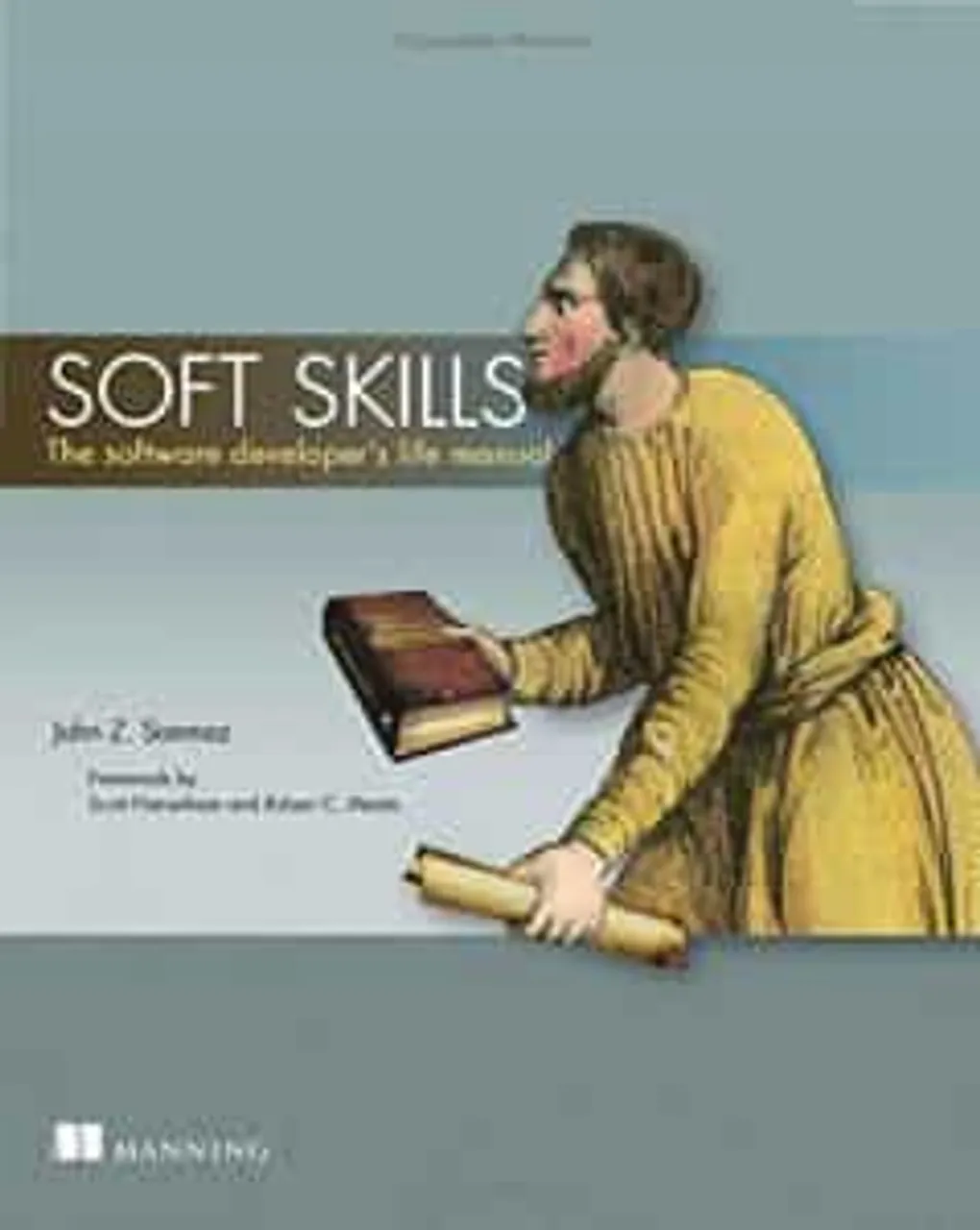
Review: Soft Skills
I haven’t done a review in a while, last time it was on a series of TDD screencasts. But every now and then, I come across a book or training course that I think, damn, that was awesome. I read and listen to a ton of books on varying subjects, mainly on development, productivity and business stuff and one of the best ones I read this year and had a big impact on me was Soft Skills, by fellow Manning author John Sonmez.
John not only wrote a great resource for developers, he wrote a 500+ page tome of developer advice. Having written a book with Manning on ArcGIS Web Development and knowing the task and trials of writing a published book, I know writing 500+ pages is no small feat.
On a personal note, many of my goals and ambitions for my career and business are heavily influenced by this book. I picked it up early on while it was still in MEAP, which is basically as it’s written, and was reaping the benefits of it long before it was complete. I would highly recommend this book to other geo pros, as much of the material in here doesn’t strictly apply to code junkies.
What’s in the book
John has broken the book down into seven sections, Career, Marketing yourself, Learning, Productivity, Financial, Fitness and Spirit. You can see the table of contents in detail here. That’s an awful lot of content. Throughout the whole book, John’s tone is incredibly conversational. I didn’t feel like I was reading a self-help book. I’m a big Tim Ferriss fan for productivity and learning tools and I have no problem putting Soft Skills on my digital bookshelf alongside Four Hour Chef (which is a learning book in disguise by the way).
As a developer, I sometimes fall into the trap of just putting my head down and wanting to write code, which is my zen, but I also run a business and I’m an employee, so there are things I need to navigate in the workplace and working with clients and partners that is sometimes outside my comfort zone. John talks about all these things and helps to guide you in these waters. From hanging out on twitter with other geo-pros and other various discussions, these are the kinds of questions that come up a lot. The career advice in Soft Skills can apply to GIS professionals as well.
Marketing yourself isn’t about spamming others to buy your shit. It’s about letting prospective employers/clients know that you have value. You may be doing some awesome stuff in your basement, but no one knows, so let them know! John talks about networking and social media and blogging, providing some valuable advice for pros on all levels.
John also provides some great learning and productivity tips & tricks. I play around with lots of programming languages, from Go to Haskell, plus tons of geo tools like GDAL and PostGIS, trying to learn as much as I can about what they have to offer. John provides some great advice on learning here. The biggest productivity tip? Stop watching TV. I’m working on that part, but I love me some Game of Thrones and SHIELD. My embracing of the pomodoro technique (again) is a direct result of reading Soft Skills. It has been huge in helping me get done what I need to get done on a regular basis.
The last three sections of the book cover topics you wouldn’t think you’d see in a book geared towards developers. Finances, Fitness and Spirit. I found these chapters particular great. It doesn’t do you much good to earn more money if you’re still broke and Johns personal story is really inspirational. The old saying of “those who can’t do teach” definitely does not apply here. John has succeeded and he is teaching others how to do it as well. The fitness section discusses about how developers can tend to let their health take a back seat to their work, which I can relate to, and that basically there are numerous benefits to making a conscious decision to be mindful of your health and fitness as a developer. The Spirit section is really about having the mindset to succeed, keeping a positive attitude and tending to your relationships.
Takeaway
I found Soft Skills to be packed with tons of great information that not only applies to young professionals just starting out in their careers, but anyone that is looking to get that next level. Even GIS/Geo pros could get quite a bit out of this book and I would recommend it along with Justin Holmans Spatial Career Guide series of blog posts. The book also has forewords from both Scott Hanselman and Robert Martin. I think the story about how John got Uncle Bob to write his forward is a big takeaway from this book. It’s all about the actions you take. It’s nice to have goals and ambitions, but unless you take action they are nothing more than dreams.